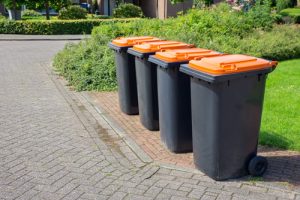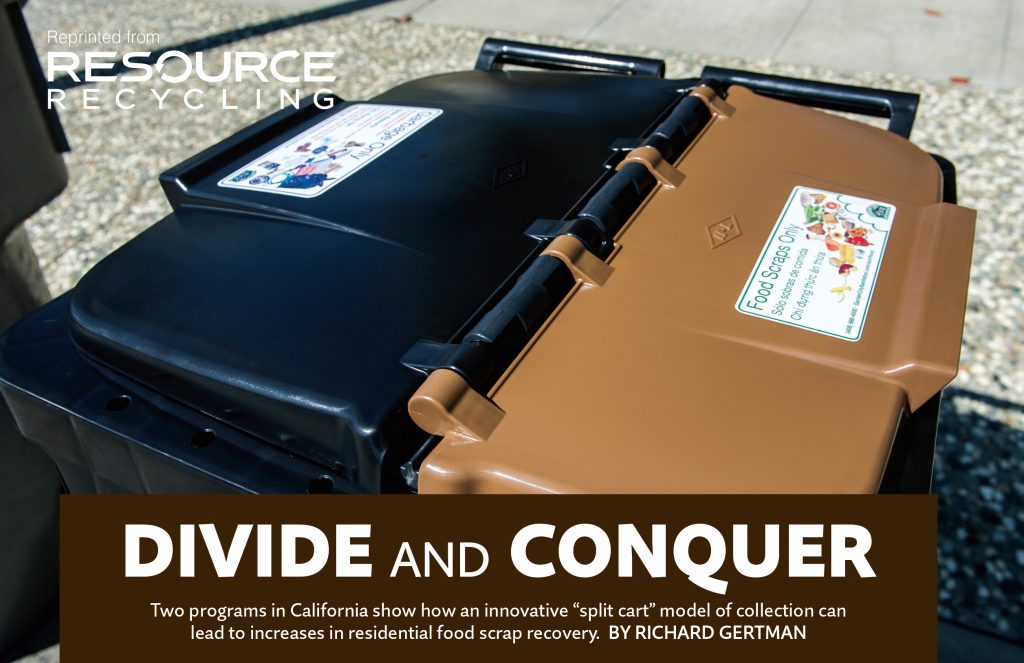 Curbside organics collection could be a key component of Washington, D.C.’s strategy to reach an 80 percent diversion rate. A feasibility study has laid out implementation details.
Curbside organics collection could be a key component of Washington, D.C.’s strategy to reach an 80 percent diversion rate. A feasibility study has laid out implementation details.

 Curbside organics collection could be a key component of Washington, D.C.’s strategy to reach an 80 percent diversion rate. A feasibility study has laid out implementation details.
Curbside organics collection could be a key component of Washington, D.C.’s strategy to reach an 80 percent diversion rate. A feasibility study has laid out implementation details.
An analysis of the recycling programs of the 10 biggest cities in the U.S. shows single-stream collection is the norm – and foam polystyrene and plastic bags are being shooed away from carts.
For the past 14 months, The Recycling Partnership has supplied an average of 235 recycling carts each day to U.S. curbside programs, according to the group.
 Minnesota is on track to improve the accuracy of its annual recycling and waste management data reporting, so its recent annual report covers a “transition year” for information on waste management activities.
Minnesota is on track to improve the accuracy of its annual recycling and waste management data reporting, so its recent annual report covers a “transition year” for information on waste management activities.
 A college student has developed software allowing residents of a Florida community to verbally ask Amazon’s Alexa voice system whether an item is locally accepted for recycling.
A college student has developed software allowing residents of a Florida community to verbally ask Amazon’s Alexa voice system whether an item is locally accepted for recycling.
 At a time when some communities are retreating on glass recycling, Momentum Recycling is doubling down on it.
At a time when some communities are retreating on glass recycling, Momentum Recycling is doubling down on it.
 At a time when some communities are retreating on glass recycling, Momentum Recycling is doubling down on it.
At a time when some communities are retreating on glass recycling, Momentum Recycling is doubling down on it.
This story originally appeared in the February 2016 issue of Resource Recycling.
Subscribe today for access to all print content.
This story originally appeared in the February 2016 issue of Resource Recycling.
Subscribe today for access to all print content.

This story originally appeared in the April 2016 issue of Resource Recycling.
Subscribe today for access to all print content.

